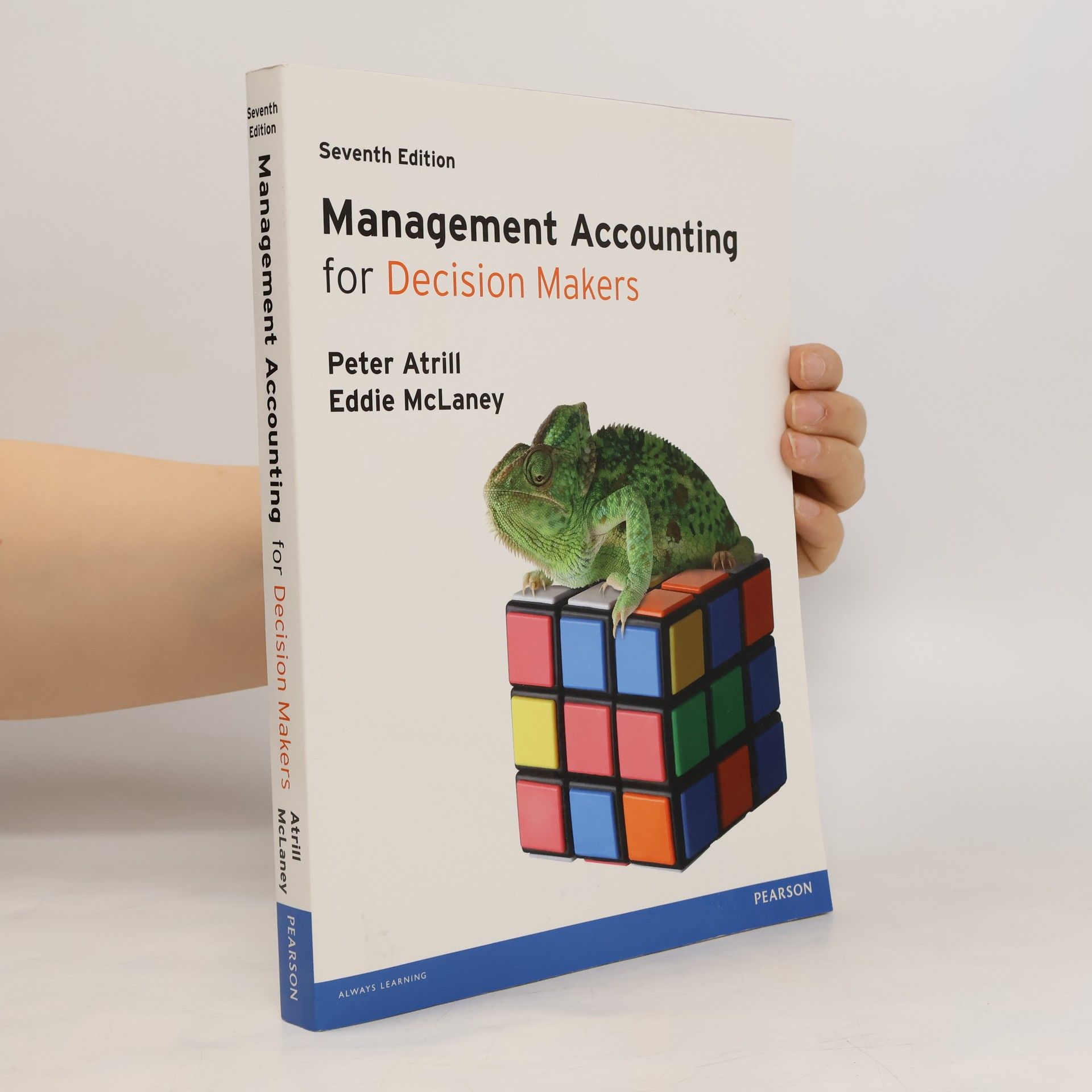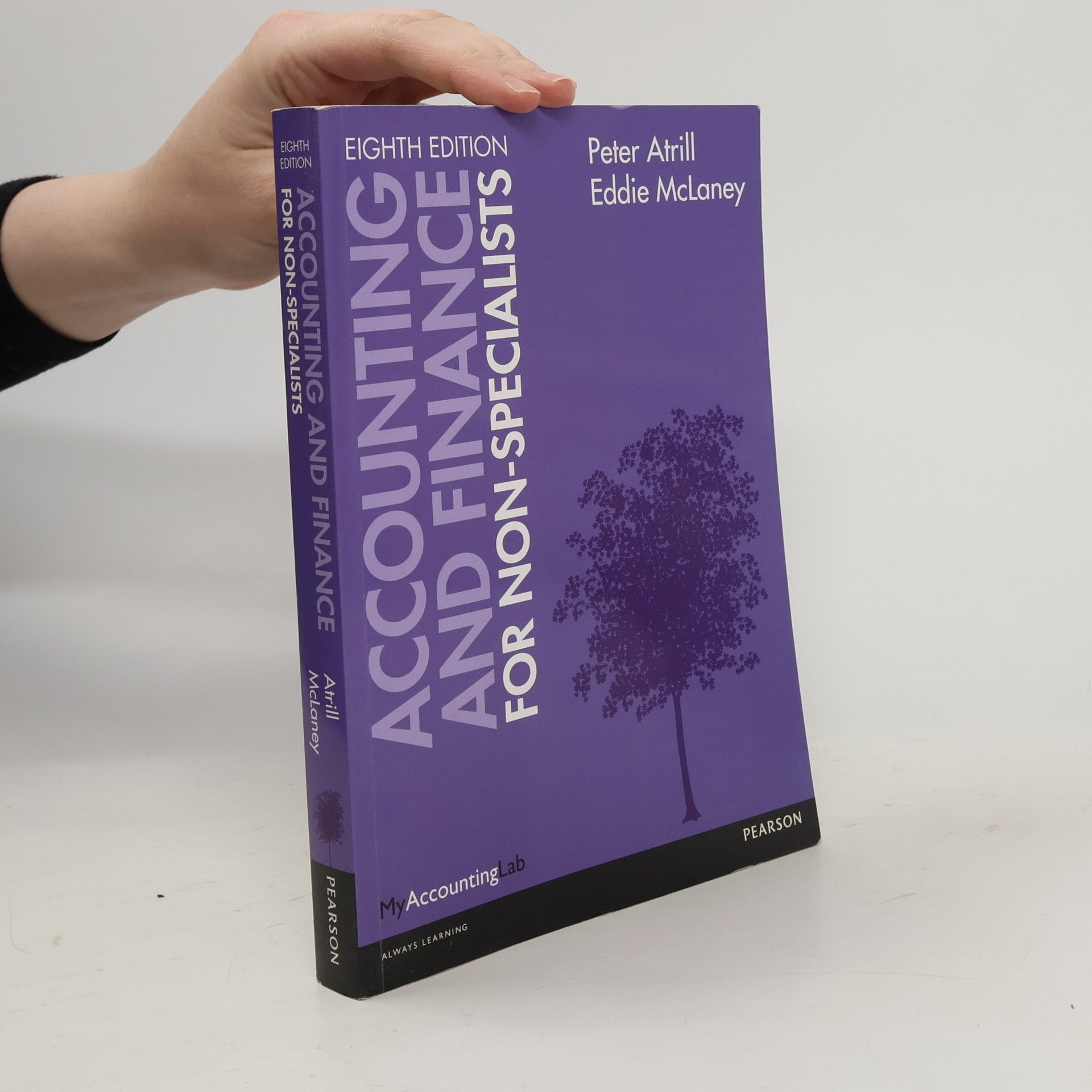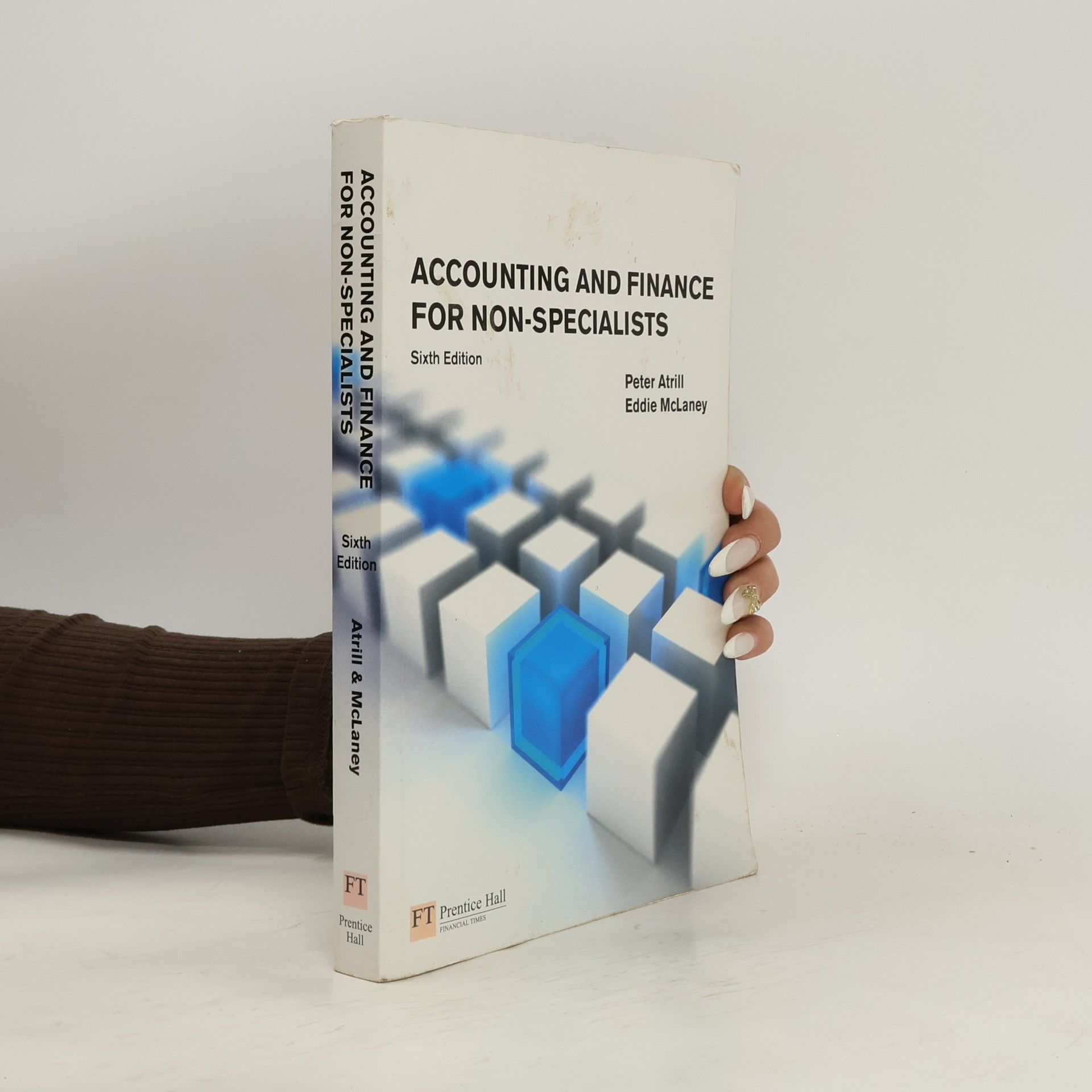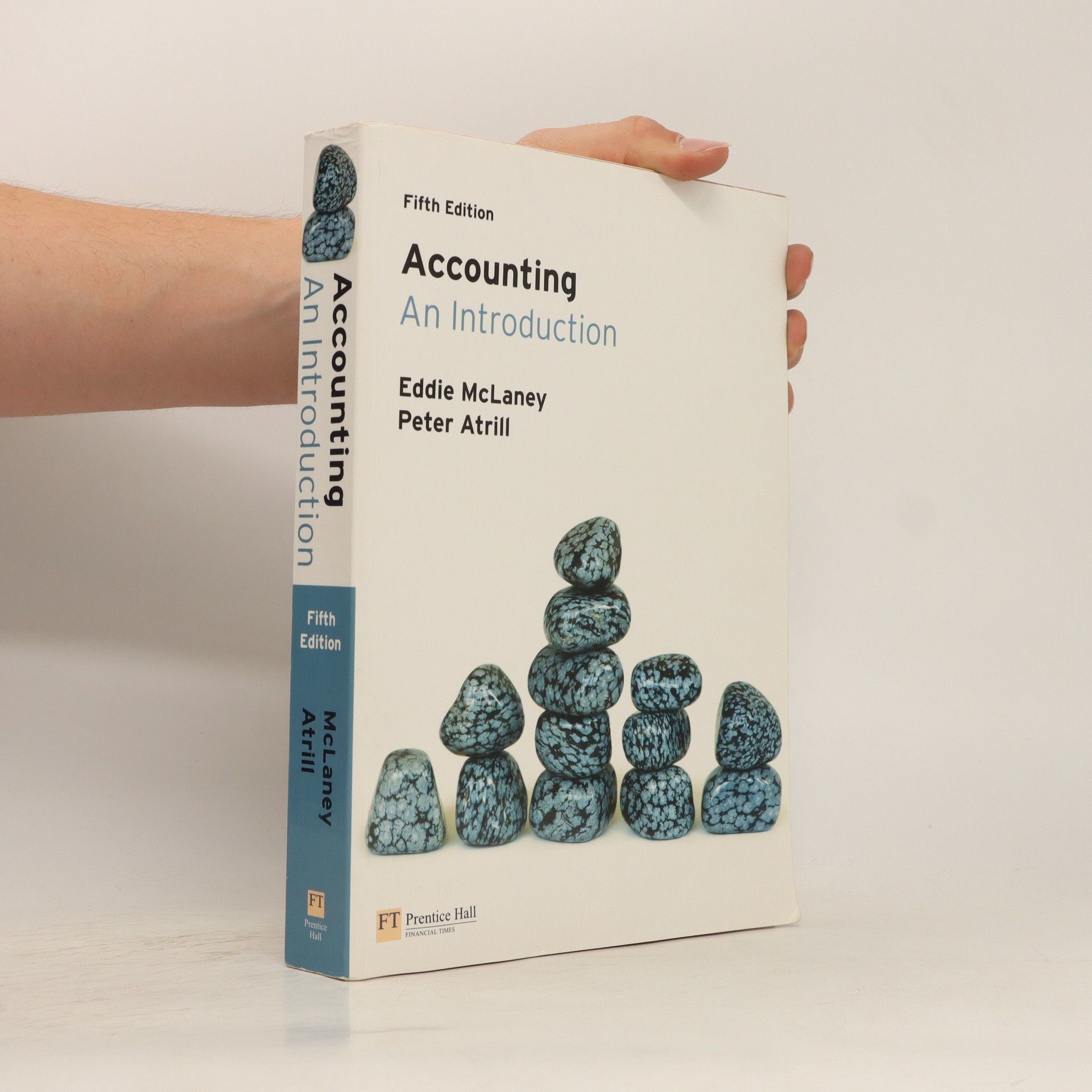The book provides a comprehensive introduction to the main principles of financial accounting, management accounting, and the core elements of financial management. With a focus on how accounting information can be used to improve the quality of decision making by managers.
E. J. McLaney Livres






Accounting and Finance for Non-specialists
- 592pages
- 21 heures de lecture
Now in its sixth edition, this successful text introduces the basic principles and underlying concepts of accounting and finance. It adopts a practical, non-technical approach, making it the ideal text for students from non-accounting disciplines. The text is written from a 'user' perspective, demonstrating ways in which accounting statements and financial information can be used to improve the quality of decision making.
Accounting and Finance
- 880pages
- 31 heures de lecture
From the well-established author team of Eddie McLaney and Peter Atrill this text aims to offer non-specialist students a balanced introduction to financial and management accounting.
Accounting for Business
- 464pages
- 17 heures de lecture
This edition clearly explains accounting information's role in making sound business decisions and focuses upon the aspects of accounting practice which are most relevant to the non-specialist manager.
Accounting and Finance for Non-Specialists. Eighth Edition
- 563pages
- 20 heures de lecture
This edition of 'Accounting and Finance for Non-Specialists' provides comprehensive coverage of the basic concepts and practical applications of financial accounting, management accounting and financial management.
Management Accounting for Decision Makers
- 566pages
- 20 heures de lecture
Designed to help you study, Management Accounting for Decision Makers is praised for its clear, accessible and uncluttered style. It provides a comprehensive introduction to the main principles of management accounting, with a strong practical emphasis and avoiding excessive technical detail. It has a clear and unequivocal focus on how accounting information can be used to improve the quality of decision making by managers, providing the perfect grounding for the decision makers of the future. This pack is comprised of a copy of Management Accounting for Decision Makers 7e and an access card with code which will enable students to take advantage of the extra support available in MyAccountingLab. Visit www.myaccountinglab.com to learn more.
Accounting: An Introduction is renowned for its clear, accessible and uncluttered style. It provides a comprehensive introduction to the main principles of financial accounting, management accounting, and the core elements of financial management. With a clear and unequivocal focus on how accounting information can be used to improve the quality of decision making by managers, combined with a strong practical emphasis, this book provides the ideal grounding for a career in management.
Business Finance for Decision Makers
- 374pages
- 14 heures de lecture
Error: HTTP code 502 from API ( 502 Bad Gateway 502 Bad Gateway cloudflare )
Financial Accounting for Decision Makers
- 608pages
- 22 heures de lecture
With a comprehensive and accessible introduction to the subject, Financial Accounting for Decision Makers focuses on the ways in which financial statements and information can be used to improve the quality of decision making. The practical emphasis throughout the book ensures the material is always relevant, whilst the authors' style of introducing topics gradually and explaining technical terminology in a clear, friendly style caters for all students, whether on specialist accounting or non-specialist business degrees.



